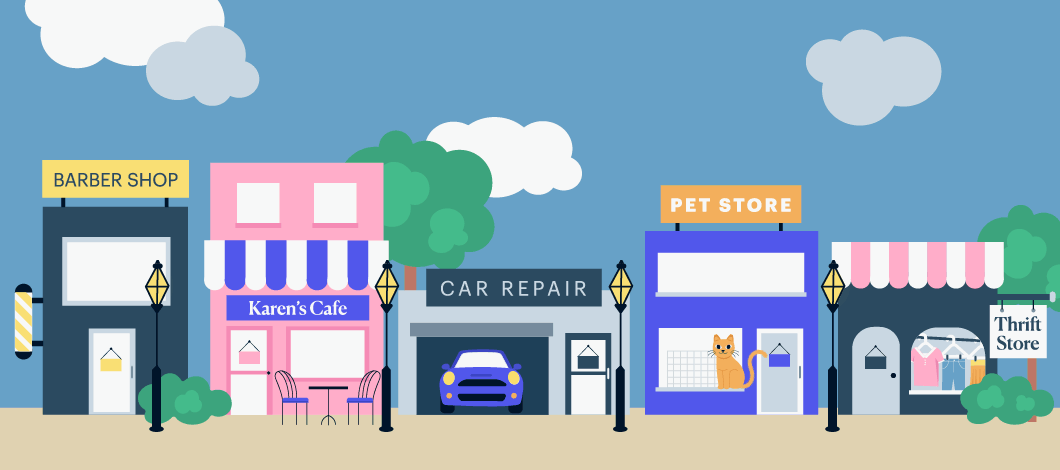What is business expansion, and why should you consider it? Business expansion is a growth strategy achieved by increasing the number of physical locations where customers can buy your products and services. It’s different from relocation because it involves opening new venues while your current locations remain in operation.
A business expansion strategy takes planning, funding, the right staff, systems and processes for it to succeed.
We’ve unpacked 8 of the top reasons why expansion is good for business.
1. Brings in New Customers
One of the main reasons for business expansion is the opportunity to bring in new customers. While customer retention is an important practice for every business, new customers are the lifeblood that drives a company to higher levels of performance. When you expand into a new geographical area, you’re effectively entering a new market. This allows you to target people living locally who can use your product or service, and who might have balked at the idea of traveling to your initial location.
New customers are important to future-proof your business because it’s inevitable that you’ll lose some of your current customers over time. Some customers will move homes, while others will find different companies to buy from. Continuously bringing in new customers is the only way to combat the loss of existing ones.
2. Improves Your Ability to Serve Customers
When you have 2 active, well-staffed locations, you can serve more customers. If you’re in a brick-and-mortar line of business—whether it’s retail, wholesale or recruitment services—you can only push a certain number of customers through the same square footage in a day. This is particularly important if your original location is bustling. Customers hate waiting for service, whether they are on hold on the telephone or waiting in line in a store. It makes no sense to have people waiting for attention when you could be converting them into income.
The 2019 State of Global Customer Service study by Microsoft shows 59% of shoppers now have higher customer service expectations than they did the previous year, so improving your ability to serve them faster helps keep them happier.
3. Gives You a Chance to Reposition
There are few better ways to boost your visibility in the market than with a campaign to relaunch and reposition your company. When you open a new location, it gives you an ideal opportunity to:
- Refresh your marketing messages
- Update your website and social media profiles
- Run a digital marketing campaign that is company-focused
If you’ve made any changes in the way you operate since you opened your business, repositioning is a great way to make current and potential customers newly aware of your offering.
4. Business Expansion Supports Growing Demand
If you’re a business owner who’s reached that critical point where you’ve got more business than you can handle, small business expansion can help you manage those demand levels and even accept more customers. By opening an additional location for your company, you can hire more workers, carry more inventory and generally supply more clients.
Expanding also allows you to offer a more significant range of products and services to satisfy the demands of your clients. This has the added benefit of diversifying your revenue stream. You won’t be completely reliant on selling a single product or service any longer.
5. Increases Your Sales Volume and Profits
It stands to reason you can only store and sell a certain amount of inventory in a defined space. Ergo, having more space, and carrying and selling more products — and product lines — is why expansion is good for business. Both of these give you the chance to increase your sales volumes. Because profitability is usually percentage-based, 10% of the profit from 2 successful locations is likely to be double the money than 10% of the profit from 1 location.
More sales equal higher revenue levels, period.
6. Builds Brand Identity
The more locations you have, the higher the number of people who are exposed to your brand. Expanding helps boost your company’s brand identity. It can help you stand out from your competitors and influence potential customers’ buying decisions. By expanding the business to a second location or introducing franchising options, you can turn a small operation into a much larger entity.
Opening a second location also enables you to add nuances to each location that might appeal to different parts of your target audience.

7. Better Distributes Risk
It’s never a good idea to have all your eggs in a single basket, and opening a new location for your business can help you decrease some of your risk. If you rent your store’s space, your business can be impacted by your landlord’s decisions. For example, imagine you operated out of 1 location for several years, but then the building is sold and the new owner decides to cancel all current commercial leases.
Starting over in a new venue at that stage can destroy a company. However, if you already have a second location in operation, switching your operation’s base can substantially reduce your risk of ruin — another reason why expansion is good for business.
8. Increases Your Investment Appeal
Opening a second location can make a notable difference to your company’s investment appeal. If you’re looking to attract venture capitalists or take advantage of any other type of equity financing, a thriving business with more than 1 physical venue is a drawcard. As long as you have enough business to support the second operation, it can make an impression on prospective financiers.
That might sound like something of a chicken-and-egg situation because while expansion can invite investment, access to funding is also a standard method of business expansion. The two are interlinked, with the one leading to the other.
Understanding Why Expansion Is Good for Business
We don’t advocate business expansion solely for the sake of it. You’ll only realize the benefits of business expansion if your company can support growth.
You’ll incur business expansion expenses when you open a second location, so calculate the ROI before making a move. Outfitting new business premises can be a costly exercise; you should have a good handle on the sales you can expect from the new venture. Many expenses—such as remodeling of the interior, furniture and fittings and the related labor costs—can be amortized over several years.
To determine how long it will take to generate profit from your new location, calculate your potential income for the same period and measure it against your capital expenditure—after deducting your overhead and fixed costs. Once you have your projections, you’ll be able to calculate the commercial loan you need to fund your expansion.







Leave a Reply